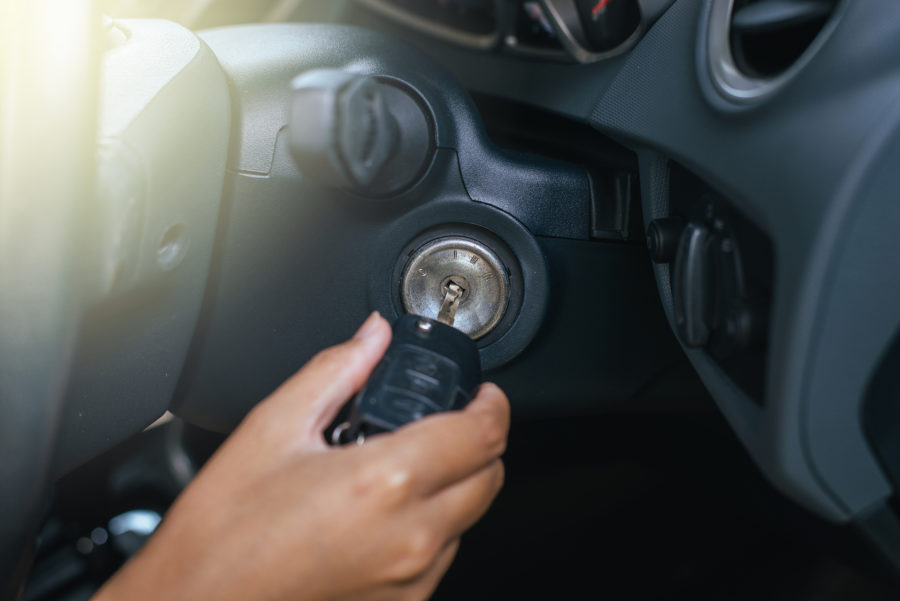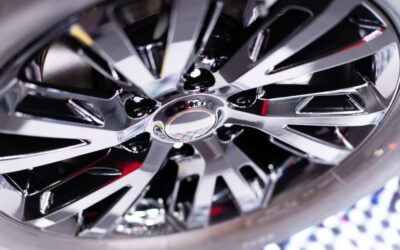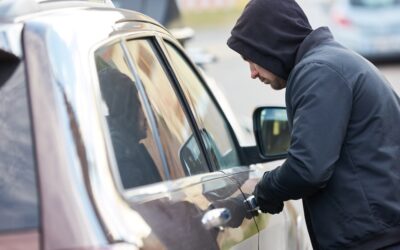For drivers of all ages, few things are more stressful and irritating than waking up on a winter morning to find your car’s become a frozen lump. You already know that your journey’s going to be delayed, because driving in winter is a pain at the best of times. So on mornings where it’s so cold that your engine won’t even start, it’s very easy to lose your cool.

Why Won’t My Car Start in the Cold?
It’s mostly down to your car battery. In low temperatures, the chemical reactions required to make the battery work can be slower. Cold batteries produce less current than warm batteries. So when you turn the ignition, you’ll struggle to generate enough power to kickstart your engine.
But there are other reasons why your car may struggle to start in the cold. Your engine oil might thicken in lower temperatures. It won’t flow around the engine as effectively, which will place even more strain on the battery. And if any fluid has somehow found its way into your fuel lines, low temperatures can cause it to freeze and cause a blockage.
Further explanations for why your car won’t start in the cold depend on the car you’re driving. Do you drive a diesel? Unlike petrol, diesel can gel in the cold. Gelled diesel will take longer to deliver power to your engine. And speaking of fuel, on cold mornings it can take up to 40% more fuel than usual to start your car. You can help to prevent non-starter situations by ensuring that your fuel tank never dips below the halfway point in winter.
Finally, some older models of cars are fitted with carburettors. This device isn’t so common in modern cars – it’s essentially been replaced by the fuel injector – but they were notoriously prone to freezing in the winter. So if you’ve somehow acquired a car that’s older than, say, 1980, you may still be relying on a carburettor for fuel injection. This may explain why you struggle to get started on cold mornings.
What To Do If Your Car Won’t Start in the Cold
If you can’t start your engine on a bitter winter morning, try following these steps:
- Turn Everything Off – Headlights, heaters, radios and anything else that could be causing a drain on your battery. This will give your battery a chance to put all of its effort into starting your engine.
- Check Your Battery – If you’re having no joy with taking the strain off your battery, it’s time to check that everything’s in order. Pay attention to the leads. If you see any signs of corrosion, you may have to clean it before your battery starts again. This is a hazardous and delicate job that involves safety gloves, protection goggles, and a strong cleaning solution. It also means disconnecting and later reconnecting your battery in exactly the right way. Read our guide to battery care here. If you feel this is beyond you, it might be safer and easier to call a professional.
- Check Your Oil – How does your engine sound when you’re trying the ignition? If it sounds like it’s struggling, you may be low on engine oil. This can cause problems for your engine in perfect conditions. In cold temperatures, low engine oil can make starting your engine almost impossible. So check your oil levels with a dipstick. Looking low? Top it up and try the ignition again. If you haven’t done so already, consider switching to an oil that’s specifically designed for cold weather.
Tried All This and Your Car Still Won’t Start in the Cold?
It might be time to throw in the towel and call a mechanic. They can give you a jump-start, or they can provide a much more accurate and reliable diagnosis while giving you tips on how to prevent this situation in the future.
When driving in winter, it’s essential that you always have your breakdown recovery provider’s contact details to hand. You don’t want to find yourself stranded, broken-down in the cold in the middle of nowhere. Read our essential winter driving guide here.
Finally, remember that accidents are more common in the winter thanks to the low visibility and slippery surfaces. When the weather’s particularly bad, don’t make any journeys that aren’t absolutely necessary. And don’t even leave the house without a good new driver car insurance policy.



